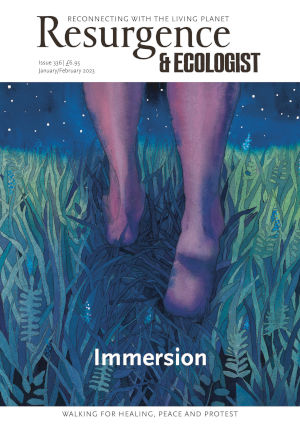A while back, Hannah Bourne-Taylor, the author of Fledgling, got in touch with me to ask for advice about hedgehogs and how she could try to reduce the number being killed on the roads of the Oxfordshire village into which she had just moved. It was a bouncy and entertaining chat, which ended with her saying she had also written a book. Would I like to read it? I said yes, but with a slightly sinking heart, as I have too many books to read already. However, two sittings later, I finished one of the best books I’ve read in ages.
Fledgling is superficially about Bourne-Taylor attempting to rear two young birds while living in Ghana as a ‘trailing spouse’ accompanying her husband in his work. The book is humorous – with one of the birds living in her hair for 84 days, sticking its backside out of the nest it had made to poop down her clothing – and she casts an illuminating poet’s eye on her surroundings too. But what really surprised me was how swiftly I was drawn into the darker aspects of her experi-
ence, because, like many of us, she feels the natural world intensely and this pain is palpable when cruelty and carelessness cause suffering, or when life is needlessly snuffed out.
I could feel her sense of dis-ease so clearly, and her loneliness too, though at no point is this self-pity: it’s just an open and honest reflection on the empty darkness that was creeping into her life. This allowed the re-emergence of the intrusive OCD thoughts that had made her younger life difficult. But what is fascinating is that without this obsessive quality there is no way that this tiny fledgling bronze-winged mannikin finch would have lasted the day when Bourne-Taylor found him at the base of a nest. She waited to see if an adult would return, and then when it didn’t she committed herself to an unexpected and ultimately redeeming journey. “My reward was one of purpose, tinted with magic. There he was, a wild bird born from a little egg high up in a grass nest between the dark leaves of a mango tree. Now he was with me, comforted by the beat of my heart and the sound of my voice. A wild creature in the palm of my hand…”
It is rare to form a real and deep connection with a wild animal, especially a bird. I have been fortunate enough to persuade a few robins to feed from my hand over the years, and that is quite magical. Truth be told, I have spent hours and hours standing in the garden with little bits of cheese or a mealworm, waiting to get the dopamine hit of contact. Bourne-Taylor’s story is all the more wonderful in that context because of her utter commitment to help one mannikin finch. A twist to a famous quote is warranted: saving one small bird will not change the world, but surely for that one small bird the world will change forever. This book is nurturing, honest, painful, beautiful and rewarding.







